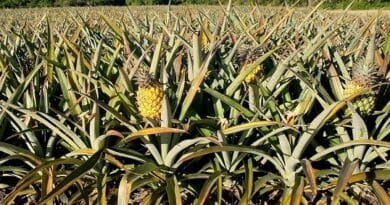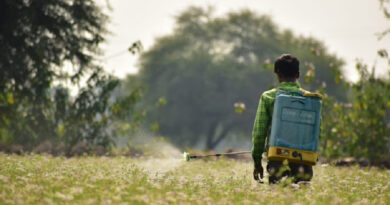Why Young and Mature Fruit Trees Differ in Yield?
Understanding the Yield Differences Between Young and Mature Fruit Trees
When it comes to cultivating fruit trees, one of the most common questions that arises is the difference in yield between small, young trees and their fully matured counterparts. Understanding these distinctions can significantly impact how gardeners, farmers, and orchardists plan their cultivation strategies. This blog post delves into the factors that influence yield differences, helping you make informed decisions for your fruit-growing endeavors.
Understanding the Growth Stage and Development Between Young and Mature Fruit Trees:
The primary difference between young and mature fruit trees lies in their growth stages. Young fruit trees are in the developmental phase, focusing on establishing their root systems, trunk strength, and canopy structure. During these early years, their energy is primarily directed towards growth rather than fruit production. As a result, young trees generally produce fewer fruits, and the quality might not be as high as that from mature trees.
In contrast, mature fruit trees have already developed a robust structure and extensive root systems. This allows them to allocate more energy towards fruit production, resulting in higher yields. The tree’s maturity also enables it to produce better-quality fruits, often with enhanced flavors and larger sizes.
Time to First Harvest Difference Between Young and Mature Fruit Trees:
Another significant difference is the time it takes for young fruit trees to produce their first harvest. Depending on the species and variety, it can take anywhere from a few years to over a decade for young trees to start bearing fruit. For example, apple trees might take 3 to 5 years to produce significant yields, while some citrus trees could take up to 7 years.
Mature trees, having surpassed this initial waiting period, produce fruit more consistently year after year. This consistent production is advantageous for those relying on the trees for commercial purposes or regular home consumption.
Yield Quantity and Quality Difference Between Young and Mature Fruit Trees:
Young fruit trees, due to their limited resources and underdeveloped structures, generally produce smaller quantities of fruit. The fruits they do produce might also vary in size and quality. During these initial years, the focus should be on nurturing the tree’s growth rather than maximizing fruit yield.
On the other hand, mature trees are capable of producing larger quantities of fruit. The quality of the fruit is often superior, with improved taste, size, and texture. This is because mature trees have optimized their energy usage towards fruit production, benefiting from years of nutrient accumulation and environmental adaptation.
Maintenance and Care Difference Between Young and Mature Fruit Trees:
Caring for young and mature fruit trees requires different approaches. Young trees need careful nurturing, including regular watering, pruning, and protection from pests and diseases. This initial investment in care helps establish a strong foundation for future yields.
Mature trees, while generally more resilient, still require maintenance to ensure optimal yield. This includes regular pruning to maintain a healthy structure, fertilization to replenish nutrients, and pest management to protect the fruits. The maintenance efforts often pay off with higher yields and better-quality fruits.
Conclusion: Why Young and Mature Fruit Trees Differ in Yield?
The journey from a small, young fruit tree to a fully mature one involves significant changes in yield, quality, and maintenance needs. Understanding these differences is crucial for anyone involved in fruit tree cultivation. While young trees require patience and care, they lay the groundwork for future abundant harvests. Mature trees, with their consistent and high-quality yields, reward the initial investment in time and effort. Whether you’re a hobbyist gardener or a commercial grower, appreciating these distinctions will help you achieve the best results from your fruit trees.



